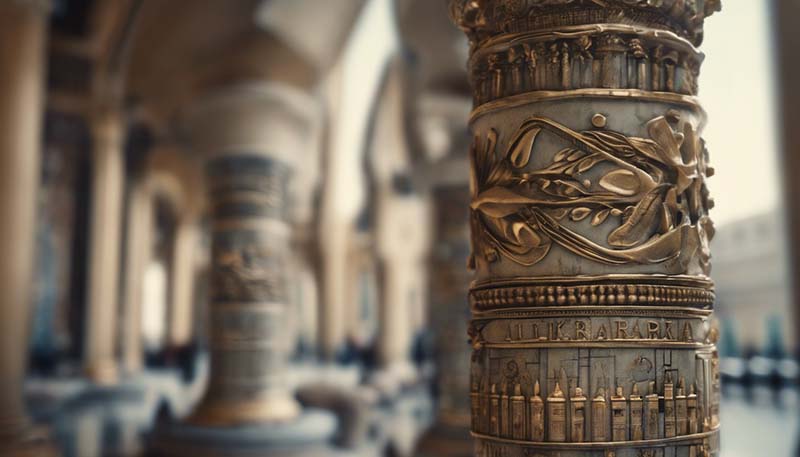The Library of Alexandria: A Pillar of Knowledge Lost
The Library of Alexandria: A Pillar of Knowledge Lost
Introduction
The Library of Alexandria, once a beacon of knowledge and intellectual inquiry, stands as one of the most significant cultural losses in human history. It was a place where scholars from around the Mediterranean flocked to study, share ideas, and create a rich tapestry of human understanding. This article seeks to explore the history, significance, and legacy of the Library of Alexandria, and to reflect on the lessons that can be learned from its tragic destruction.
History of the Library of Alexandria
Establishment
The Library was established in the 3rd century BCE in the city of Alexandria, Egypt. It was part of the cultural and intellectual hub created by its founder, Ptolemy I Soter, and expanded by his successors, most notably Ptolemy II Philadelphus. The library was housed in the Mouseion, a research center dedicated to the Muses, the goddesses of the arts.
Collection and Scholars
The Library's collection was vast, including works from across the known world. It was said to contain hundreds of thousands of scrolls, covering subjects from astronomy to zoology. The Library attracted the finest minds of the era, including Euclid, the father of geometry, and Eratosthenes, who calculated the Earth's circumference with remarkable accuracy.
Advertisement
Decline and Destruction
The Library's downfall was a gradual process. The rise of the Roman Empire, the shift in political power, and the eventual fall of the Ptolemaic Kingdom contributed to its decline. The exact events leading to its destruction are shrouded in mystery, with several theories suggesting fires set during Julius Caesar's siege of Alexandria in 48 BCE, or later conflicts such as the decree of the Emperor Theodosius I in the 4th century CE.
Significance of the Library
Cultural and Intellectual Center
The Library of Alexandria was more than just a repository of scrolls; it was a cultural and intellectual center that fostered the exchange of ideas. It was a place where scholars could study, debate, and collaborate, leading to advancements in science, mathematics, and philosophy.
Preservation of Knowledge
The Library's mission was to collect and preserve the knowledge of the ancient world. It aimed to have a copy of every book ever written, ensuring that the collective wisdom of humanity would not be lost to the sands of time.
Influence on Modern Libraries
The legacy of the Library of Alexandria can still be seen in modern libraries and institutions of learning. Its ideals of collecting, preserving, and providing access to knowledge continue to inspire the design and purpose of libraries today.
Legacy and Lessons
Importance of Preservation
The loss of the Library of Alexandria is a stark reminder of the importance of preserving knowledge. It serves as a cautionary tale about the fragility of human achievements and the need to protect our cultural heritage.
Access to Information
The Library also highlights the importance of access to information. By making knowledge available to all, it helped to democratize learning and promote the spread of ideas.
Resilience of Knowledge
Despite its destruction, the spirit of the Library of Alexandria lives on. The works that were saved or recreated by scholars have continued to influence the course of human history, demonstrating the resilience of knowledge and the human desire to learn and grow.
Conclusion
The Library of Alexandria was a monumental achievement in the history of human civilization. Its loss is a profound tragedy, but its legacy continues to inspire us to value and protect the knowledge of our world. As we continue to build and maintain libraries and institutions of learning, we honor the memory of the Library of Alexandria and its commitment to the pursuit of knowledge.

References
Various historical texts and scholarly articles were consulted in the creation of this article. For a more detailed exploration of the Library of Alexandria, consider the following sources:
- "The Library of Alexandria: Centre of Learning in the Ancient World" by Richard Stoneman.
- "The Fate of the Ancient Library of Alexandria" by Mostafa El-Abbadi.
- "The Great Library of Alexandria" by Luciano Canfora.